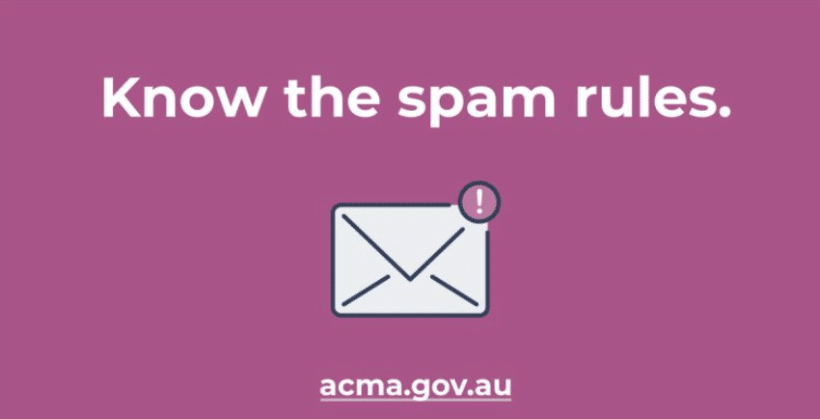📑 Table of Contents
The Australian Communications and Media Authority (ACMA) has unveiled its detailed compliance priorities and expectations for 2024-25, urging businesses across Australia to meticulously review and update their email, SMS, and telephone marketing practices to meet stringent regulatory standards.
Rigorous Enforcement and Significant Penalties
Over the past 18 months, ACMA has imposed more than $15 million in penalties on businesses for violations of spam and telemarketing regulations. This enforcement effort highlights the authority’s commitment to protecting consumers from invasive and deceptive marketing practices.
The newly announced compliance priorities and accompanying Statement of Expectations reflect ACMA’s proactive approach to ensuring businesses respect consumer rights and consent in their marketing activities.
ACMA’s Regulatory Framework
Explanation of the Legal Framework Governing Spam and Telemarketing in Australia
The Australian Communications and Media Authority (ACMA) enforces regulations to protect consumers from unsolicited communications and ensure ethical marketing practices. The key legislation includes:
- Spam Act 2003: Regulates the sending of commercial electronic messages. It requires businesses to obtain consent, provide accurate sender information, and include an unsubscribe option in every message.
- Do Not Call Register Act 2006: Allows individuals to opt out of receiving telemarketing calls. Businesses must check the register and avoid contacting registered numbers.
- Related Regulations: Include specific rules on the content and delivery of marketing communications, penalties for non-compliance, and guidelines for reporting violations.
These laws ensure that businesses engage in transparent and respectful marketing practices, protecting consumers from unwanted spam and telemarketing calls.
Key Compliance Priorities for 2024-25
1. Misleading Spam Messages: ACMA’s primary focus is on eliminating the practice of businesses sending commercial messages disguised as “service” or non-commercial messages to bypass spam regulations. The authority is particularly vigilant about industries where misleading marketing could cause significant consumer harm, such as interactive wagering and financial services. This priority ensures that all commercial messages are transparent and truthful, preventing consumers from being misled.
2. Online Retail Sector Compliance: ACMA plans to intensify its efforts to educate businesses in the online retail sector about spam regulations and will take formal action against serious and systemic non-compliance. Given the rapid growth of online retail, ensuring that businesses in this sector adhere to marketing regulations is crucial for maintaining consumer trust and protecting personal information.
Focus Areas
- Emerging Technologies
- AI and Automation: Monitoring the use of artificial intelligence and automation in marketing to prevent misuse and ensure ethical practices.
- Data Analytics: Addressing the implications of advanced data analytics on consumer privacy and unsolicited communications.
- New Communication Channels: Evaluating and regulating new communication platforms and technologies that may be used for marketing purposes.
- Industry Compliance
- Enhanced Monitoring: Increasing efforts to monitor and audit businesses for compliance with the Spam Act 2003 and the Do Not Call Register Act 2006.
- Stricter Penalties: Implementing stricter penalties for businesses that fail to comply with regulations to deter non-compliance.
- Support and Guidance: Providing more resources and guidance to businesses to help them understand and meet their legal obligations.
- Consumer Protection
- Do Not Call Register: Strengthening the enforcement of the Do Not Call Register to ensure that consumers’ preferences are respected.
- Education and Awareness: Launching new campaigns to educate consumers about their rights and how to protect themselves from spam and telemarketing.
- Complaint Handling: Improving the processes for handling consumer complaints and taking swift action against violators.
- Privacy Safeguards: Enhancing measures to protect consumer privacy and personal data in the context of marketing communications.

Detailed Statement of Expectations for E-marketing and Telemarketing
ACMA’s Statement of Expectations provides a comprehensive guide to help businesses secure and manage consumer consent for email, SMS, and telephone marketing. The guidelines emphasize transparency, accessibility, and clarity in the consent process, aiming to align business practices with consumer expectations and legal requirements.
Core Recommendations:
- Express Consent: Obtain clear and accessible consent at the collection point, avoiding hidden terms in fine print or complex procedures. Consent terms should be straightforward and understandable.
- Comprehensive Consent Terms: Clearly define the purpose of the consent, including:
- Types of products and marketing channels covered.
- Identify all parties using the consent, including affiliates and partners.
- Duration of the consent’s validity.
- Simple procedures for withdrawing consent.
- Double Opt-In Mechanism: Implement a double opt-in process, such as email confirmation, to ensure genuine consent from consumers.
- Careful Use of Inferred Consent: Use inferred consent judiciously only where there is a clear, ongoing relationship with the consumer, and the marketed goods or services are directly related to that relationship.
- Easy Unsubscribe Options: All commercial electronic messages should include user-friendly unsubscribe facilities and process requests promptly, ideally within five business days.
- Comprehensive Unsubscribe Facilities: Provide consumers with the option to unsubscribe from all marketing messages, not just a selection.

Practices to Avoid:
- Adding contact details to marketing lists without explicit consent.
- Using outdated consent that consumers would not reasonably expect to still be valid.
- Requiring logins or personal information to unsubscribe from marketing communications.
- Inferring consent from single transactions, such as contact details provided for receipts or invoices.
- Using pre-checked boxes on forms or bundled consents that do not offer clear, separate choices for each purpose.
- Engaging in refer-a-friend schemes without direct permission from the individual.
- Continuing to send marketing communications after an unsubscribe request, regardless of who may be using the contact details.
- Re-contacting consumers post-unsubscribe to solicit re-subscription.
Strategic Implications for Businesses
The release of ACMA’s compliance priorities and Statement of Expectations is a critical reminder for businesses to align their marketing practices with the latest legal standards. This is particularly important for the online retail sector, which will be a significant focus for ACMA’s compliance efforts in the coming year.
While the Statement of Expectations is not legally binding, it provides a clear framework indicating ACMA’s enforcement strategy. These guidelines will help businesses avoid penalties and enhance consumer trust and engagement.
Businesses are encouraged to review the full Statement of Expectations on the ACMA website for more comprehensive details on its compliance priorities and recommendations.
Consumer Protection Measures
Initiatives to Protect Consumers from Unsolicited Communications
ACMA has implemented several initiatives to safeguard consumers from spam and telemarketing practices:
- Strict Regulations: Enforcing compliance with the Spam Act 2003 and the Do Not Call Register Act 2006, ensuring businesses obtain consent before contacting consumers.
- Do Not Call Register: To avoid unsolicited telemarketing calls, consumers can register their numbers. Businesses must check this register regularly and respect consumer preferences.
- Penalty Enforcement: This means imposing significant penalties on businesses that violate regulations, deterring non-compliance, and protecting consumer rights.
Resources Available for Consumers to Report Spam and Telemarketing Violations
- Online Reporting: ACMA provides an easy-to-use online platform where consumers can report spam emails, SMS, and telemarketing calls. This helps ACMA track and address violations effectively.
- Hotline: Consumers can call a dedicated hotline to report violations or seek advice on dealing with unsolicited communications.
- Consumer Guides: ACMA also offers guides and resources on its website, helping consumers understand their rights and how to protect themselves from spam and telemarketing abuses.
Education and Awareness Campaigns
- Public Awareness Campaigns: ACMA runs campaigns to educate the public about their rights under the Spam Act and the Do Not Call Register Act. These campaigns use various media channels to reach a broad audience.
- Workshops and Webinars: Hosting events to inform consumers about the latest trends in spam and telemarketing and how to safeguard their personal information.
- Collaborations with Consumer Groups: Partnering with consumer advocacy organizations to spread awareness and provide resources to vulnerable populations.
Moreover, by implementing these measures, ACMA aims to create a safer communication environment, empowering consumers to take control of their interactions and reduce the impact of unsolicited communications.

Future Outlook
Predictions for the Evolution of Spam and Telemarketing Regulations
As technology continues to evolve, spam and telemarketing regulations are expected to become more stringent. For instance, we can anticipate tighter controls on the use of AI and data analytics in marketing. Additionally, new communication channels will likely face closer scrutiny to ensure compliance with consumer protection laws.
Potential Changes to ACMA’s Approach in the Coming Years
In response to these changes, ACMA may also shift its approach by increasing the use of advanced monitoring tools and expanding its enforcement capabilities. Furthermore, there could be a greater emphasis on international cooperation to tackle cross-border spam and telemarketing issues.
Importance of Staying Informed and Proactive in Compliance Efforts
Furthermore, given these potential developments, businesses must stay informed about regulatory changes and be proactive in their compliance efforts. Hence, by doing so, they can avoid penalties and maintain consumer trust. Therefore, regular updates and continuous improvement of compliance practices will be crucial for long-term success in the evolving landscape of spam and telemarketing regulations.
Conclusion
In conclusion, ACMA’s regulations governing spam and telemarketing play a crucial role in protecting consumers and ensuring ethical marketing practices. Key points to remember also include the stringent legal framework under the Spam Act 2003 and the Do Not Call Register Act 2006, ACMA’s priorities for 2024-25 focusing on emerging technologies, industry compliance, and consumer protection, and the importance for businesses to stay informed and proactive in their compliance efforts. Moreover, by adhering to these regulations and also staying updated on future developments, businesses can foster trust with consumers and mitigate risks associated with unsolicited communications.
